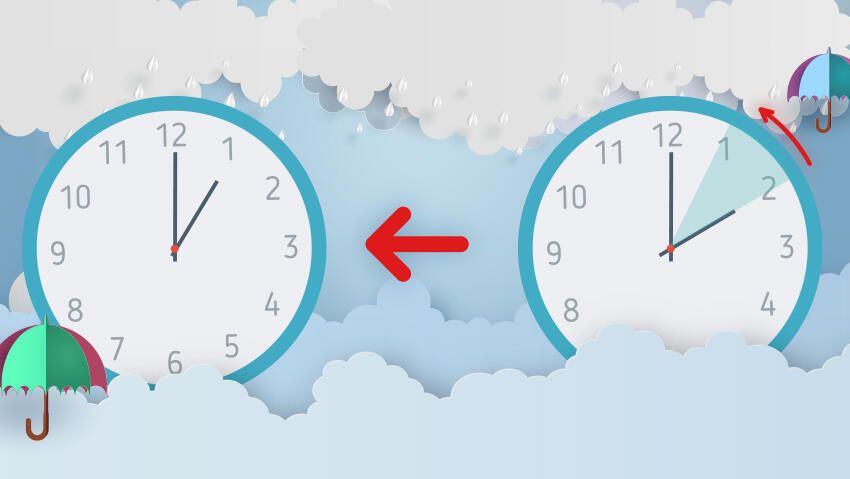Getting your Trinity Audio player ready...
The Daylight Saving Time will come to an end in Israel in the early hours of Sunday, with the clock going back one hour and giving locals an extra hour of sleep.
The DST will end on October 30, on a night between Saturday and Sunday, at exactly 2am.
Israel's summer clock lasted 210 days in 2022 and will return on Friday, March 24, 2023, just two weeks before the Jewish holiday of Passover.
"The additional hour of light during the long summer clock contributed to the country's economy and trade," said Chief Executive of the Interior Ministry Yair Hirsh.
In 2013, Knesset passed a law extending DST, which according to the Energy Ministry has saved the country's energy consumption market over NIS 200 million (roughly $56.57 million) since it went into effect.
Citing the advantages of the DST, many support making it last throughout the year. Supporters argue the winter clock leads to shorter evenings, increases the risk of road accidents because drivers spend more time driving in darkness, and costs the economy hundreds of millions of shekels.
On the final day of the summer clock, the sunrise set to occur at 06:59am and sunset at 17:55pm. On the first morning of the winter clock, October 30, sunrise time will be 6:01am, and sunset time at 16:54pm, and Israel will lose one hour of daylight.
Some countries stopped moving the clock in the summer and winter, including most Asian, African and South American countries. In the United States, there are elements that push to stop changing the clock during the winter.
In addition, the European Parliament voted in 2019 to cancel the seasonal transition to a summer clock - so any country can decide whether to stay in its usual time zone or to permanently switch to the DST. The issue has also been raised in Israel many times, but the Knesset has decided to leave the situation as it is for the time being.



